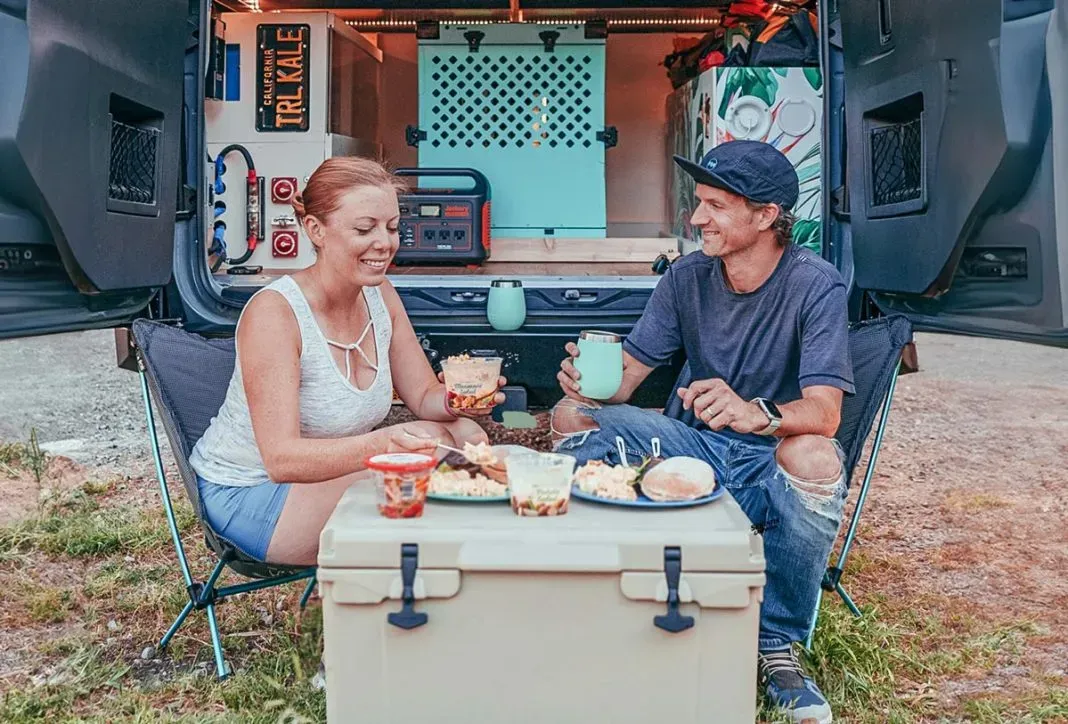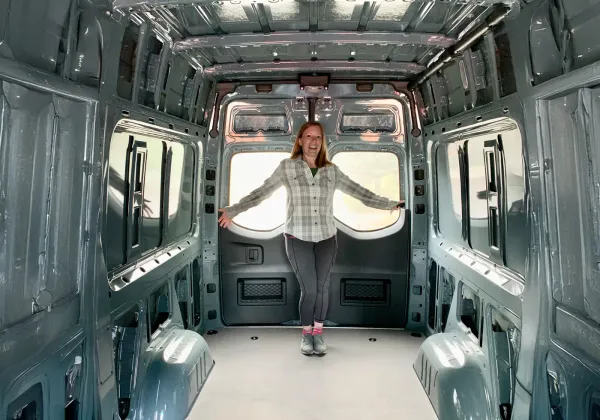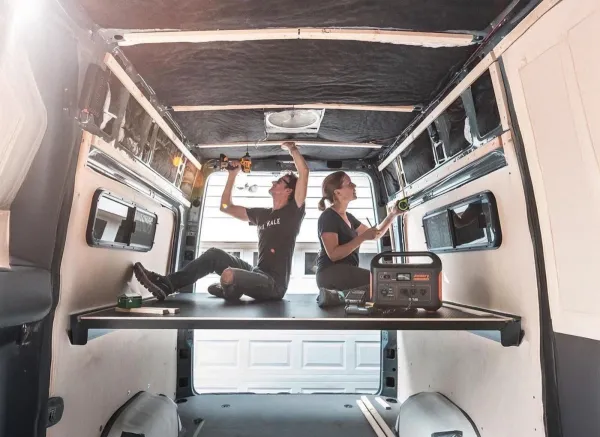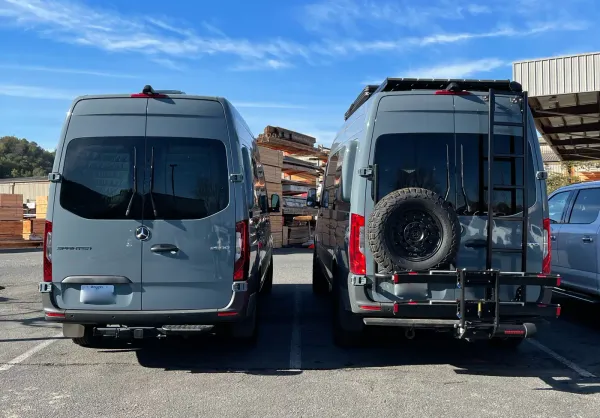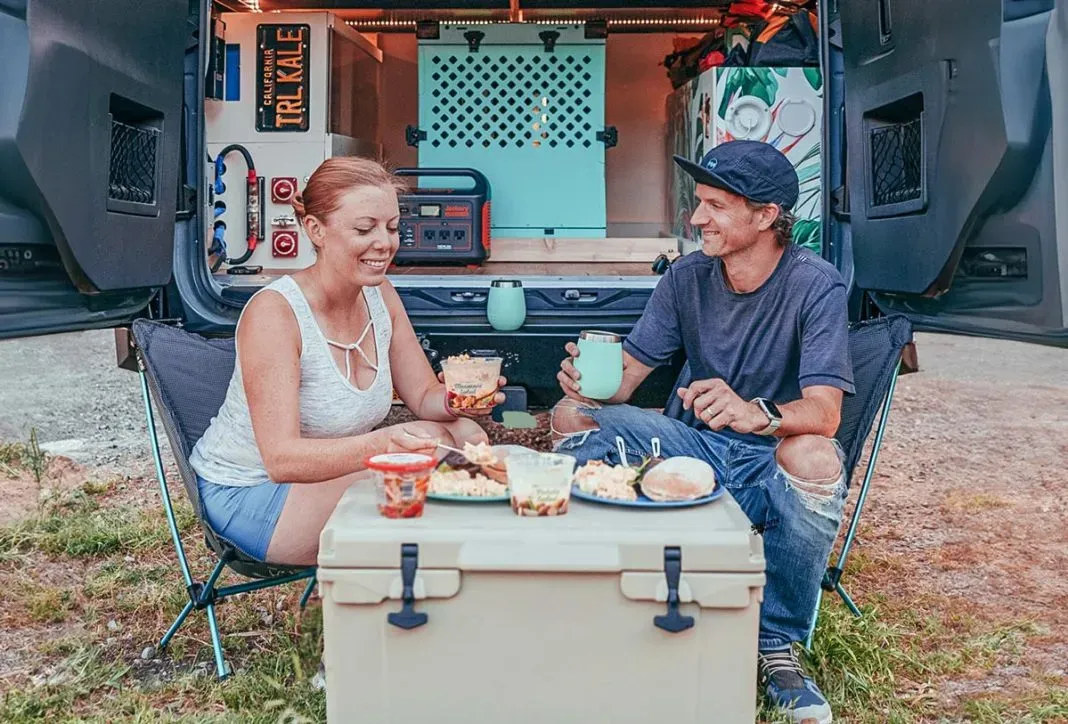First off — a huge, warm welcome, and thanks for being here! This van life series marks the beginning of Campers & Camping, the next chapter of what originally began as Sprinter Campervans over on Instagram.
If you're into camper vans, road trips, camping, and practical tips for making life on the road feel like home, you're in the right place. Make sure to subscribe and join our growing community — you'll get early access to new guides, honest gear reviews, and plenty more real-life van life inspiration.
💌 This is part of our Ultimate Guide to Van Life – a members-only series for subscribers of Campers & Camping (Formerly known as 'Sprinter Campervans').
In this in-depth series, we share everything you need to know about van life: from choosing your first camper van, to budgeting, working remotely, and handling the realities of life on the road.
✨ Not subscribed yet? Join our community for free to unlock the full series →
📚 Ultimate Guide to Van Life – Table of Contents:
- Is this lifestyle really for you? ← You are here
The pros and cons of van life, what to expect, and how to try it before committing - Choosing or building your camper van
Should you buy pre-built or go DIY? And what van is best for your lifestyle? - How much does van life cost – and can it save you money?
Budget breakdowns, cost-saving tips, and ways to make money on the road - Full-time vs. part-time van living - How to choose?
Explore which option fits your goals, work setup, and travel style best - The unglamorous stuff: parking, showers, toilets & more
The real-life logistics of living in a van and how to stay comfortable - Finding community and staying connected
Avoid isolation and tap into the amazing van life community
So you’re curious about van life. Maybe you've seen the sunset-drenched photos on Instagram, or you’ve just had enough of paying too much rent and bored of your daily routine.
Whatever led you here, this guide is the perfect place to start.
Van life is more than a social media trend, for many people, it’s a lifestyle shift. One that’s full of freedom, challenge, simplicity, and a good amount of trial and error.
But is it really something you can do? And what should you expect if you decide to go for it?
Let’s break it down.
What is van life?
At its core, van life means living part-time or full-time in a vehicle — usually a converted cargo van like a Sprinter, Transit, or Promaster.
But it doesn’t have to be a van.
Some folks make their homes in buses, SUVs, or even station wagons. What ties it all together is the mindset: trading square footage, and house bills for freedom.
Some people build minimalist setups with just a bed and a few storage bins. Others go all-out with solar power, composting toilets, and full-time remote work setups that can run off-grid for over a week at a time.
Whether you’re in it for weekend road trips or a long-term lifestyle change, van life gives you the tools to live on your terms — with fewer possessions, and more open roads.
Why do people choose van life?
🌍 Freedom
You’re not tied to a lease, location, or routine. You choose where you wake up, when you move on, and how each day unfolds.

🧘♂️ Simplicity
Living in a small space forces you to prioritize what matters. Less stuff, less clutter, less stress.
🌲 Nature
With fewer walls and more wilderness, van life gets you closer to the outdoors — whether that’s mountains, beaches, forests, or national parks.
💰 Financial reset
Done right, van life can dramatically cut down your living expenses. You might even be able to save more than when you were in a house or apartment.
🫶 Community
Yes, van lifers have meetups, online groups, and spontaneous campsite friendships. There’s a genuine community spirit on the road — and you don’t need to go it alone.
The realities (a.k.a. the stuff Instagram doesn’t show)
Van life is not all perfectly framed shots of coffee by the mountains. There’s plenty of beauty, yes — but also a fair bit of problem-solving.
Here are some things to keep in mind:
- You’ll spend a surprising amount of energy planning. Where to sleep, where to shower, where to get water… it becomes second nature, but it takes some adjustment.
- Space is tight. Especially if you’re sharing your van with a partner or a dog (or both). We did it with our dog and two cats for a while. Privacy is… flexible.
- Weather can be a dealbreaker. Your van likely won’t have the same insulation or HVAC system as a house. You’ll find yourself chasing mild climates and avoiding extremes.
- You’ll need to figure out money. If you already work remotely, you’re ahead of the game. If not, it might take time (and some creativity) to replace your income or shift to a new type of work.
Is it realistic?
Yes. People of all ages, backgrounds, and income levels do it. But it takes planning, flexibility, and realistic expectations. That’s why we always recommend: try it before you commit.
Rent a camper van for a weekend or a week. Get a feel for the space. Test what it's like to cook, sleep, and live in that environment. You'll quickly figure out what you need (and what you don’t), and whether the trade-offs are worth it for you.
Services like Outdoorsy and Escape Campervans are perfect for renting camper vans without having to make a big upfront commitment.
A mindset shift
One of the best things you can do is treat van life not as a “forever decision,” but as a season. Maybe it’s six months, a year, or just the summer. Knowing it’s not permanent gives you permission to enjoy it without the pressure of it needing to be perfect forever.
Some people fall in love with it and build their whole life around the road. Others do it once, have a blast, and move on. Either way, you win because building memories is part of living a joyous life.
What’s coming next
In Part 2 of this series, we’ll dig into one of the most questions people ask us on our Instagram Channel: Should you buy or build your camper van — and how do you choose the right one?
We’ll talk about Sprinters, DIY builds, budget options, and how to know what van is actually right for you.
👉 Head to Part 2: Choosing or building your camper van

